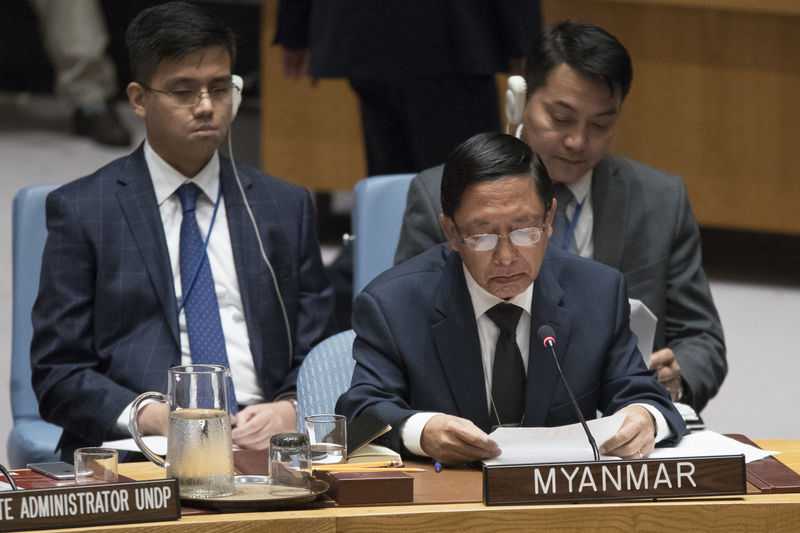Myanmar denies U.N. genocide finding
30 August, 2018

Myanmar rejected Wednesday the findings of a U.N. probe alleging genocide by its military against the Rohingya, after the United States and other countries joined growing calls for the accused to face justice.
Myanmar has come under immense pressure this week over last year’s military crackdown that pushed more than 700,000 of the Muslim minority into Bangladesh.
On Monday, a U.N. probe detailed evidence of genocide and crimes against humanity “perpetrated on a massive scale” towards the Rohingya Muslim minority, including acts of rape, sexual violence and mass killings.
In a session of the U.N. Security Council a day later several countries — including the United States, Britain, France and Sweden — called for Myanmar’s military leaders to be held accountable.
But Myanmar rejected the U.N. mission’s findings in a typically defiant defense of its response to a crisis that has heaped international opprobrium on both its military and civilian leadership.
“We didn’t allow the FFM [the U.N. Fact-Finding Mission] to enter into Myanmar, that’s why we don’t agree and accept any resolutions made by the Human Rights Council,” said government spokesman Zaw Htay, according to Wednesday’s state-run Global New Light of Myanmar newspaper.
He pointed to the formation of Myanmar’s own Independent Commission of Enquiry, which he said was set up to respond to “false allegations made by the U.N. agencies and other international communities.”
The country has “zero tolerance for human rights violations,” Zaw Htay said, but he added that “strong evidence” including records and dates of any alleged abuses must be provided before investigations are undertaken.
The government would take “legal action against any violation of human rights,” he said.
Much of Myanmar’s Buddhist-majority public has vilified the Rohingya since the army’s crackdown, with little sympathy for a minority who have for years been stripped of citizenship and denied free movement, access to healthcare and education within the country.
Myanmar’s military retain significant constitutional and political power and are essentially free of civilian oversight.
But the country’s civilian leaders, including Nobel laureate and de facto head of state Aung San Suu Kyi, have repeatedly defended the military crackdown as a proportionate response to Rohingya insurgents in Rakhine State who stormed police posts.
But rights groups allege parts of the violent military campaign were already being prepared before the attacks.
Around a million Rohingya now languish in refugee camps in Bangladesh, which has struggled to deal with such a huge influx into an already impoverished country.
Bangladesh and Myanmar have signed a deal to repatriate last year’s wave of refugees but there has been little progress given Rohingya fears of returning without guarantees for their safety.
Meanwhile, the drumbeat of calls for accountability is getting louder, with U.N. investigators calling on the Security Council to refer the Myanmar crisis to the International Criminal Court (ICC) or to create an ad hoc tribunal.
Several Security Council members threw support behind the idea while also calling for a mechanism to “collect and preserve proof” of abuses.
Myanmar’s Ambassador to the United Nations Hau Do Suan questioned the U.N. report’s findings, reiterating that Myanmar “did not accept the mandate of the mission because we have our concern about the mission’s impartiality.”
TAG(s):
